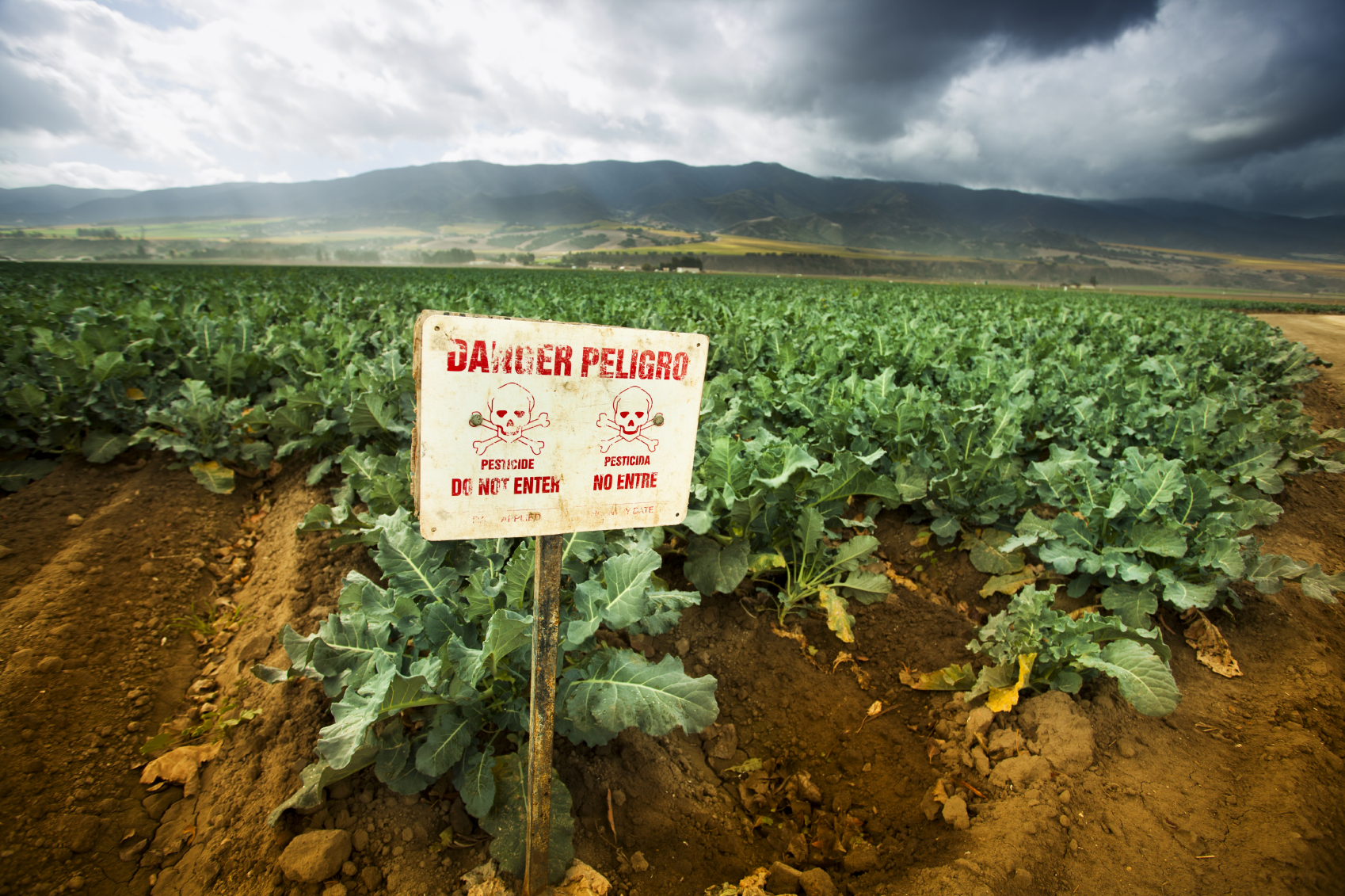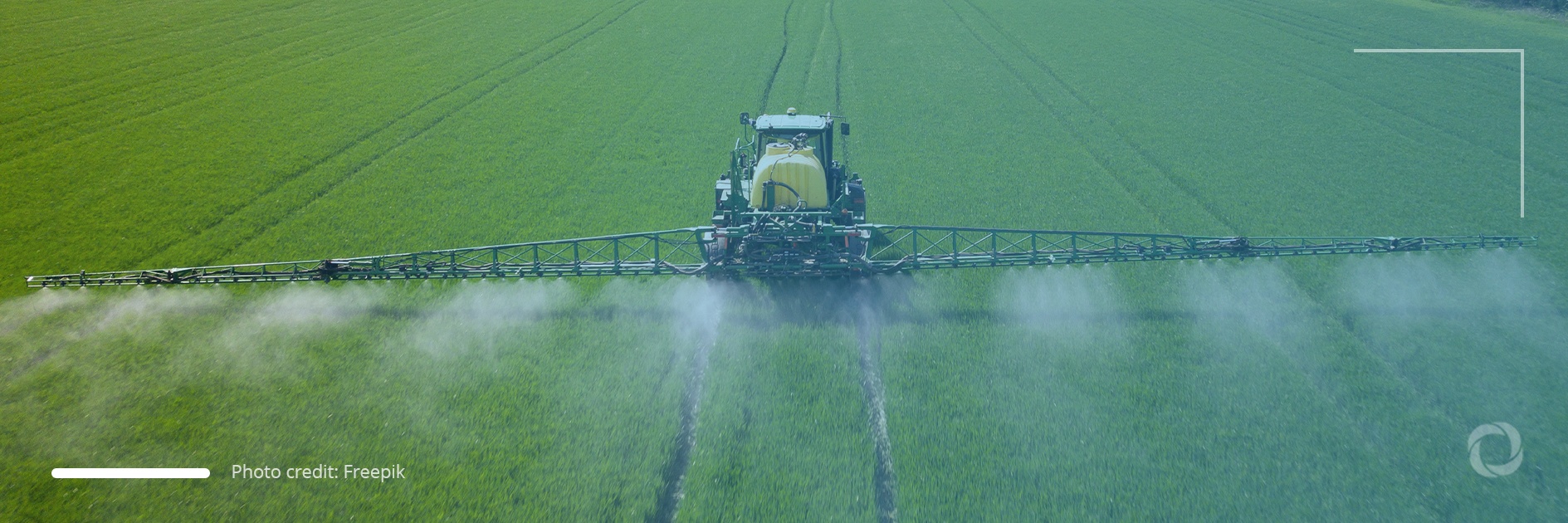A country that exports millions of tons of food to the world is increasing the amount of pesticides used on its crops every year. In recent months Brazil, one of the main pillars of world agriculture, passed laws that facilitated the approval of pesticides used on its crops – a policy that has been extended during the current government of President Jair Bolsonaro. This policy has aroused criticism, the more so because it has tripled the increase in the amount of pesticides over the past few years yet contributed to only a 10% increase in the amount of crops harvested.
Since 2019, when Bolsonaro took office, 1,411 pesticide products have been approved. In Brazil, there are now 3,477 pesticides on the market meaning that 40% of all such products sold in the country were approved during the three years of Bolsonaro’s government.
Research carried out by Unearthed, an organization that is part of Greenpeace shows that Brazil is the country that buys the most pesticides in the world, accounting for a total of US$3.3 billion per year. The products are mainly used for growing soybeans, corn, and cotton.
The Brazilian numbers are much higher than the neighboring countries of Latin America with Argentina importing approximately US$229 million worth of pesticides according to the survey whereas in Mexico, the total is US$115 million.
“Brazil buys more pesticides than any other country,” says the publication. “Approval of new pesticide products by Brazilian regulators, including those containing HHPs, grew under the governments of Michel Temer and Jair Bolsonaro.”
What are HHPs?
According to the publication, Brazil is the destination for almost half of the pesticides classified as “highly hazardous”, the so-called HHPs (highly hazardous pesticides). In 2018, sales of this type of pesticide generated revenue of about US$4.8 billion for the five largest companies in the sector – BASF, Bayer, Corteva, FMC, and Syngenta. More than two-thirds of sales were made to low- and middle-income countries with Brazil being the main market.
The World Health Organization and the Food and Agriculture Organization define HHPs as “pesticides that are known to pose acute or chronic risks to health or the environment according to internationally accepted classification systems”.

Banned in the EU but allowed in Brazil
A report by German researchers entitled Pestizidatlas 2022, released earlier this year, shows that since 1990 the use of pesticides in the world has grown by 80%.
Experts show that developing countries such as Brazil have more flexible legislation, allowing the use of pesticides with substances that are considered highly toxic and which are therefore banned in the European Union (EU).
“Brazil imposes limits on its population for toxic residues in food that are sometimes two or three times higher, and in some cases 100 times higher than the maximum values allowed in the EU,” says the study. “In 2019, according to official Brazilian data, 23% of the samples exceeded the maximum allowed values of residues, which are already high,” the text further highlighted.
One of the products considered particularly harmful is glyphosate which generates more than US$1 billion in trade between Europe and Brazil every year. This pesticide is on the list of Inca, the Cancer Institute in Brazil, as a “possible carcinogen”. Among other agrochemicals that could pose chronic health hazards are glufosinate, a herbicide produced by BASF, and the agricultural fungicide cyproconazole, manufactured by Corteva which EU regulators have already classified as harmful to the fetus, fertility, and sexual function.
The study also points to a controversy over the reason why farmers use pesticides to increase crop yields.
“In Brazil, the use of herbicides (especially glyphosate) tripled in soybean cultivation between 2002 and 2012, reaching up to 230,000 tons per year. But despite the increase in the amount of pesticides applied, yields per hectare increased by only about 10%”.
Brazil intends to make it even more flexible
Last February, Brazil’s Chamber of Deputies approved a bill to make the pesticide trade in the country even more flexible.
Currently, the pesticide registration process is carried out by three organizations – the National Health Surveillance Agency (Anvisa), the Brazilian Institute for the Environment and Renewable Natural Resources (Ibama), and the Ministry of Agriculture.
Officials linked to agriculture argue that due to the lack of maintaining an analysis of the records of products by these three organizations, assessments can remain unchanged for up to eight years.
The process, considered controversial, has been analyzed for more than 20 years and now seeks to reduce the approval stages with only the Ministry of Agriculture having the final word for the release of products. This is being criticized by environmentalists who refer to it as the Poison Law.
“The proposal does not cover the gaps in inspection, monitoring, and reassessment of products, which are already precarious, and even removes the little protection that the population had,” evaluates the agronomist Marina Lacôrte.

